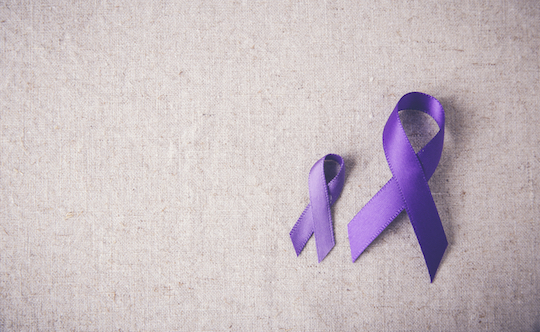This blog post was written by the New York Women’s Foundation for our 2018 PowHer The Vote campaign.
Intimate partner abuse typically makes the news only when it ends in tragedy. Yet, it is a widespread, public health crisis affecting millions of people each year.
The numbers are staggering.
In New York City, the Police Department responds to approximately 230,000 domestic incidents each year. Nationally, domestic violence hotlines collectively field more than 20,000 phone calls a day. The data suggest that nearly 20 people a minute are physically abused by their intimate partner—a figure that translates into more than 10 million individual attacks a year. And the victims of those attacks are often not the only ones to suffer. The data indicate that 90 percent of the children of survivors witness the abuse sustained by their parents—and one in fifteen is directly subject to violence as well.
Domestic violence does not discriminate—it can be found in all communities and at all income levels. Even men can be survivors of abuse. Nonetheless, it is significantly more likely to be experienced by women. And it is far most likely to occur in communities in which poverty exacerbates the basic stressors of life; lack of funds limits options for escape; and internal cultural beliefs—or general societal bias—constrain the ability to seek help. Organizations working with LGBTQI individuals, for example, report that their constituents—particularly their transgender and gender-nonconforming (TGNC) constituents of color—are statistically far more likely to experience abuse than are members of other communities; and are far more likely to encounter disbelief, dismissal or even further abuse when they attempt to seek justice.
For many years, domestic and intimate partner abuse was considered to be a “private matter.” In more recent decades, however—in large part due to the efforts of a robust cohort of bold women-led organizations, including a range of current or past grantee partners of The New York Women’s Foundation—it has become broadly recognized as a matter of public health and strong public concern. A growing number of innovative and committed organizations offer a range of vital supports to survivors—including tailored support for women in communities of color, immigrant communities and the LGBTQI community.
One of The Foundation’s grantee partner organizations—the New York City Anti-Violence Project—for example, is mounting a strong and multi-front response to the acute risks of hate violence, intimate partner violence, sexual violence and state-sanctioned violence against LBTQI individuals in general and TGNC individuals of color in particular. Its strategies include extensive outreach and educational efforts; advocacy, organizing, leadership development and support for activism; and counseling and other direct services designed to promote healing from the trauma of discrimination and attack.
Another, Women’s Justice NOW. provides a strong common organizing ground for a range of local, regional and national advocacy efforts seeking such systemic changes as increased city and state support for women’s reproductive health clinics; and better-informed policies and practices by police and prosecutors in cases involving sexual assault and violence.
Black Women’s Blueprint is providing a safe haven and comprehensive support system for the large and -growing number of young cis, trans and gender-fluid individuals of color who have been traumatized by the experience of sexual violence and/or hate crimes. It offers them prevention services and counseling; builds their leadership and voice; and helps them forge a narrative that is authentically rooted in feminist and African diaspora experience.
And, finally, a few organizations—including Sakhi for South Asian Women in the South Asian immigrant community and Sauti Yetu in the African immigrant and refugee community—are filling a critical gap by providing culturally and linguistically competent services to constituents experiencing domestic violence, teen dating violence, sexual assault, and stalking; and are working to shift the overall way that violence against women is viewed and addressed within those communities.
This October, as we observe Domestic Violence Awareness Month, we need to do more than simply wear the purple of solidarity. Referring a person who you think may be experiencing intimate partner violence to an appropriate New York Women’s Foundation grantee partner organization is a good way to start. So is contributing to those grantee partners’ efforts—either directly or through a contribution to The Foundation.
For a full list of—and contact information for—grantee partners working to combat violence against women and local and national hotlines, see: https://www.nywf.org/intimate-partner-violencedomestic-violence-resources/.


